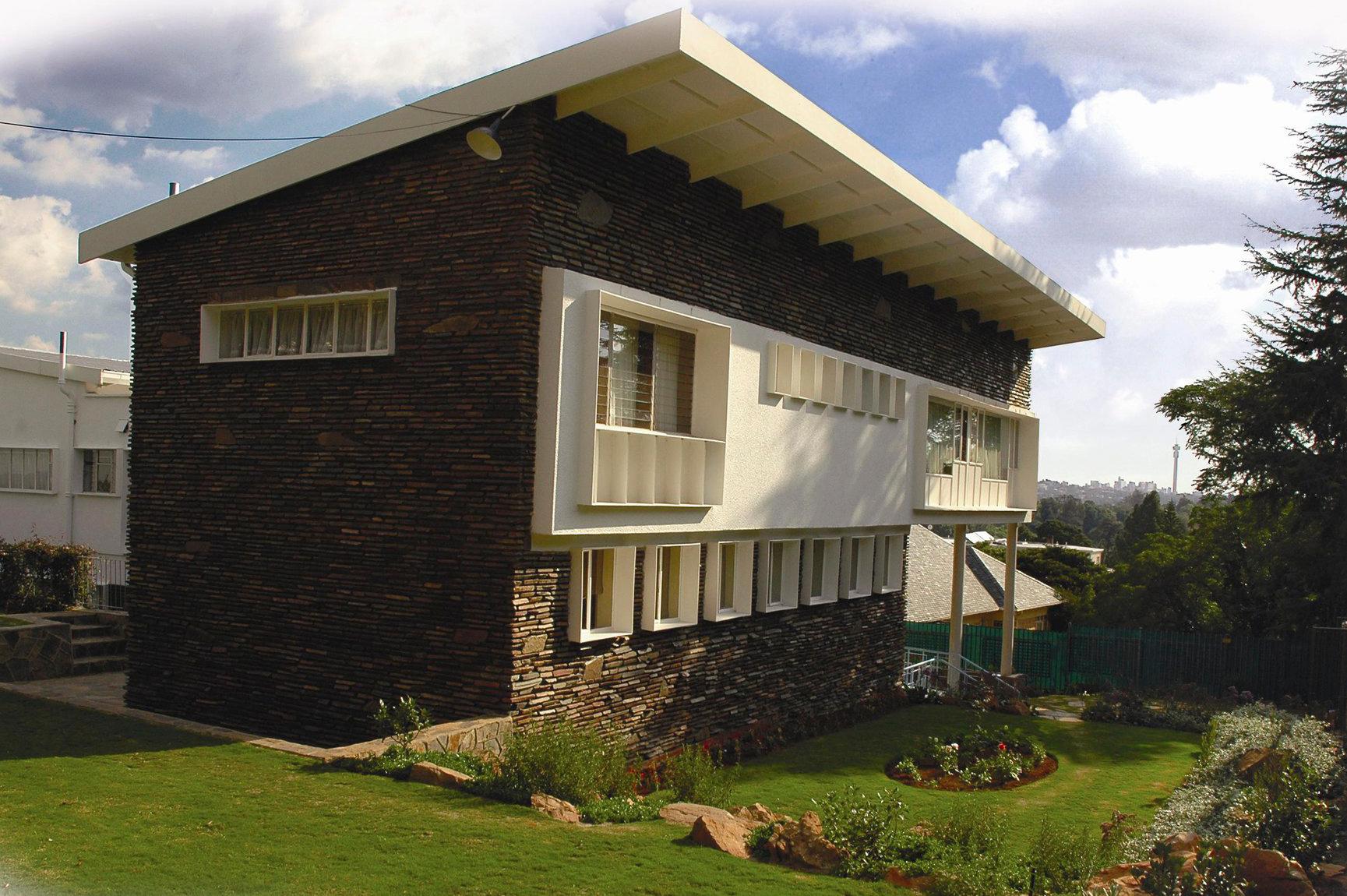Inside L. Ron Hubbard’s Johannesburg mansion, where Scientology’s toughest test was born
A view of L. Rob Hubbard's former Johannesburg home.
JOHANNESBURG, South Africa — Welcome to L. Ron Hubbard’s 1960s African dream home.
From the teak parquet floors and the zebra skin rug to the view of Johannesburg’s twinkling skyline, the house looks exactly as it did when Hubbard, the science fiction writer turned Church of Scientology founder, lived here with his family.
These days Scientology is more popularly known for its Hollywood devotees like Tom Cruise and esoteric beliefs involving Xenu the galactic overlord. The organization’s more controversial practices, as well as allegations of physical abuse of rank and file members, are detailed in the recent book and documentary film, “Going Clear.”
But few realize that it was here in South Africa, at the time under strict racial apartheid, where Hubbard developed key practices for new members joining the organization. While Hubbard lived in Johannesburg for just six months, from September 1960, he would later describe this time as instrumental in Scientology’s development.
Today visitors can tour Hubbard’s old home in the Linksfield Ridge area of Johannesburg, bought by the Church of Scientology and restored to vintage glory based on old photographs, complete with a 1960s-era fridge and Oregon pine accent wall.
A brochure deems it a “landmark site,” and a place of “supreme significance,” along with Hubbard's former homes in the United States and Britain. Thanks to meticulous restoration, it says, “visitors are effectively teleported back in time to pivotal moments of discovery and thus revelation."
"Like walking into 'That '70s Show,'” a TripAdvisor reviewer raves.
Last year the house was even named a “heritage site” in Johannesburg. A blue plaque affixed to an outside wall describes it as the “L. Ron Hubbard House” while also noting it was designed in 1951 by the architect Frank L. Jarrett for a Greek timber merchant.
Luc Dubois, a French Canadian who helps run the Church of Scientology's work in Africa, said that Hubbard came to Johannesburg following correspondence with a South African follower he had met in the United States.
“She kept him updated on the situation in South Africa, so he came with two purposes: to expand Scientology activities in South Africa, and to help with the apartheid situation,” Dubois said.
Informational displays at the Johannesburg house portray Hubbard as having been firmly anti-apartheid, advocating “one man one vote” and touting equality under a Constitution, Bill of Rights and Penal Code written by Hubbard during his time in southern Africa, and sent unsolicited to government leaders.
According to Dubois, Hubbard met with white government officials “to tell them they need to treat people equally.”
“L. Ron Hubbard really planted the seeds of democracy in South Africa,” he said.
But some of Hubbard’s work tells a different story. In “Dianetics: The Modern Science of Mental Health,” Scientology’s seminal text, Hubbard writes of one of South Africa's major ethnic groups that “in his native habitat the Zulu is only outside the bars of a madhouse because there are no madhouses provided by his tribe.”
In later editions the word “Zulu” has been changed to the word “primitive.”
Dusk view from L. Ron Hubbard's former Johannesburg home.
A photo posted by Erin Conway-Smith (@erinconwaysmith) on
In a letter written in November 1960 to Hendrik Verwoerd, a former president considered the architect of apartheid, Hubbard praises the devastating practice of forced resettlement of non-white South Africans.
"Having viewed slum clearance projects in most major cities of the world may I state that you have conceived and created in the Johannesburg townships what is probably the most impressive and adequate resettlement activity in existence,” says the letter, which was brought up during South Africa's 1972 Commission of Inquiry into Scientology.
While in South Africa, Hubbard developed Scientology's toughest test: a confessional-style list of probing questions, asked of followers while they hold the tin can electrodes of a lie detector-type device known as an “e-meter.”
The “Johannesburg Security Check,” or the “Joburg,” as it is known, asks a range of intimate and sometimes bizarre questions focused on crime, espionage and sex. One of the questions asks: “Have you ever slept with a member of a race of another color?" Also: "Do you know any Communist personally?" and "Have you ever been a newspaper reporter?"
The test was later officially abolished, but various reports indicate it is still sometimes used.
Hubbard also taught Scientology practices to “household staff including a Zulu butler,” and this “spread widely throughout the Zulu community wherein Ron was soon distinguished as ‘the white traditional healer,'" Scientology documents state.
“Peace for Africa could depend on Scientology,” says a letter handwritten by Hubbard, framed and on display at the house.
While Hubbard never returned to South Africa after leaving in 1961, he spent about six months in neighboring Rhodesia (now Zimbabwe) in 1966.
His time in Rhodesia was by all accounts less successful than his stay in South Africa. Despite efforts to ingratiate himself to Ian Smith, the leader of Rhodesia’s white minority government, Hubbard was branded a “crackpot,” according to a CIA memo. The Rhodesian government refused him an extension on his visa, and he was forced to leave the country.
The Zimbabwe house where Hubbard lived has been bought by the Church of Scientology but is not yet open for visitors. “We are waiting for more stable times,” Dubois said.
The story you just read is not locked behind a paywall because listeners and readers like you generously support our nonprofit newsroom. If you’ve been thinking about making a donation, this is the best time to do it. Your support will get our fundraiser off to a solid start and help keep our newsroom on strong footing. If you believe in our work, will you give today? We need your help now more than ever!
